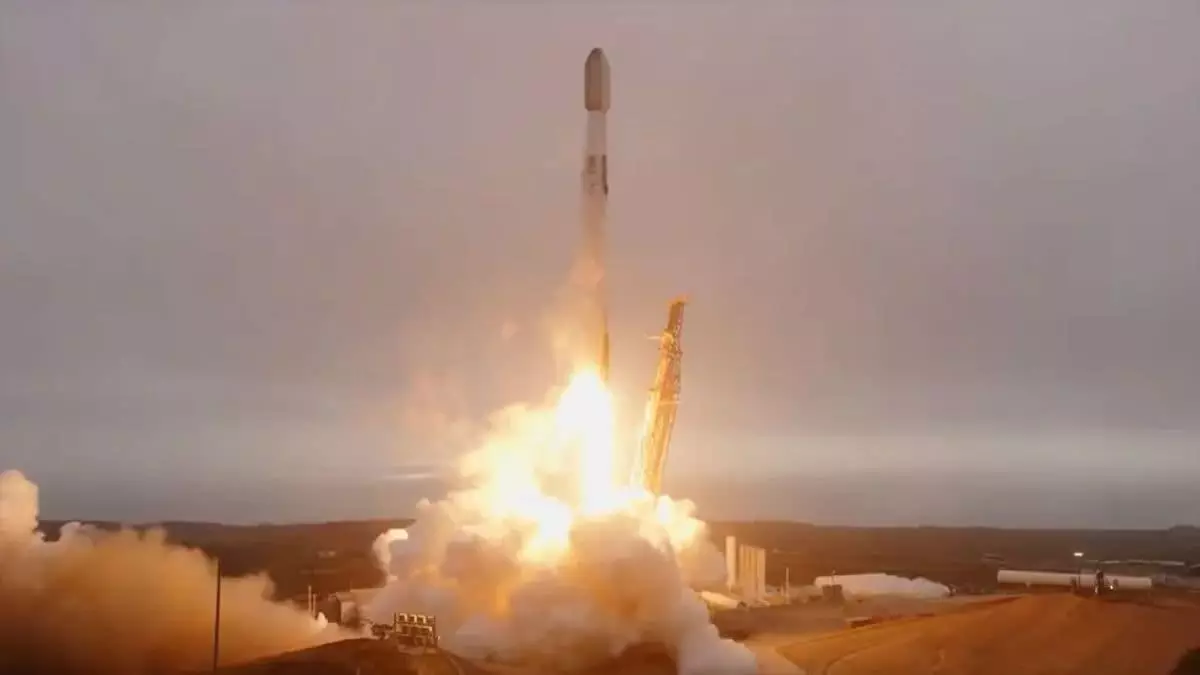In the ever-evolving realm of technology, few stories are as captivating as that of SpaceX and its relentless pursuit of connectivity through its Starlink satellite network. Recently, the company achieved yet another milestone by launching 26 new Starlink satellites—a feat that not only amplifies its existing infrastructure but also underscores its ambition to revolutionize global internet access. This mission, executed from California’s Vandenberg Space Force Base, is a testament to SpaceX’s pioneering spirit in reportably transporting us into a future where high-speed internet is not a privilege but a right.
Innovating Beyond Expectations
SpaceX’s innovative capacity is truly front and center with their Falcon 9 rocket, which, on this occasion, accomplished its 15th flight with an astounding level of expertise. The successful landing of the first-stage booster on the droneship Of Course I Still Love You exemplifies not just technical prowess but also a growing environmental consciousness in the push for reusable technology. In an era where excessive waste is increasingly scrutinized, SpaceX is setting an example by redefining what it means to be efficient in space travel and satellite launches. However, one cannot overlook the implications of such rapid advancements on regulatory issues and space traffic. While the rush to place more satellites in orbit has its benefits, it poses significant risks regarding space debris and its potentially catastrophic consequences.
The Connectivity Divide
Despite these technological achievements, there lies a troubling dichotomy. As SpaceX breathes life into the idea of universal connectivity, we must question whether this ambitious goal addresses the very real inequalities that persist in accessing technology. In underserved regions around the globe, high-speed internet is still deemed an unattainable luxury for many. With reports of rural areas being neglected in favor of more lucrative metropolitan markets, it raises ethical questions about the priorities of an entity like SpaceX. The question remains whether the rush to commercialization and profitability undermines the company’s original vision of connectivity for everyone.
Future Possibilities and Responsibilities
Moreover, with the expansion of the Starlink constellation comes the potential for groundbreaking applications ranging from in-flight connectivity to emergency communication systems. While these advancements could be a game-changer, they also demand rigorous debate surrounding privacy and security. How much personal data will be gathered, and how will it be safeguarded in this hyper-connected world? With great power comes even greater responsibility, and it is crucial to hold tech giants accountable as they navigate the complexities of data ethics alongside technological progress.
SpaceX’s achievements in launching new satellites may undeniably contribute to a more connected world, yet they bring forth deeper conversations about equity, ethics, and sustainability in our quest for high-speed internet access. As we propel into this new era, it will be incumbent upon society to ensure that no one is left behind. The future may be bright, but it must shine for all.


Leave a Reply